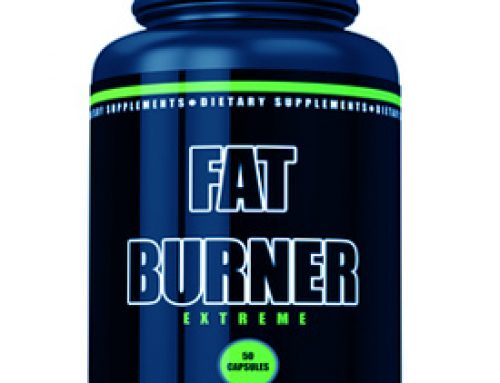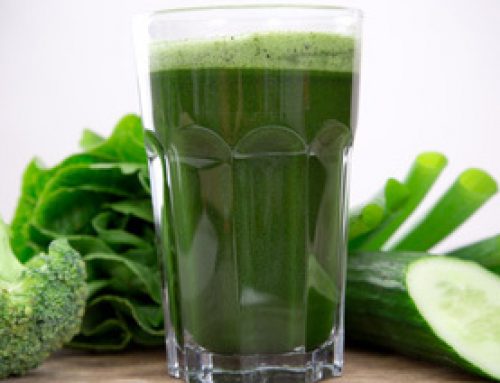Q: Hey Tom, in your opinion do you think it’s worth paying theextra money for grass fed beef and free range or organic chicken?I’ve read some good things about it, but it’s so expensive.Does it really make any difference on your fat loss program?
Fred R.
A: I know what you mean about the cost of grass fed beef. The samething is true of organic food.
I mentioned “organic food” to a friend of mine last week, and he asked,”Do you mean like what you get at Whole Foods?”
I said, “Yes, exactly… that’s a natural food and organic supermarket.”
He said, “yeah well, that place costs so much, I call it Whole Paycheck!”
I was cracking up, but the truth is, organic food really is expensive and so is grassfed beef and free range chicken, (and wild alaskan salmon), so it’sa valid question to ask.
I do believe that it makes sense to make your body and your health the highest priorities in your life and invest in the best food you can afford. Look at it this way – if you put the cheapest fuel in your luxurycar, how well is it going to run and how many miles are you going toget out of it?
While I’m on car analagies, health author and educator Paul Chek oncenoted how ridiculous it is to watch how many $75,000 + luxury cars pullup to the Mcdonald’s or Burger King drive through window to buy $1.99hamburgers.
I would say that’s a serious case of having priorities screwedup, wouldn’t you? The driver has no problem shelling out the $1,100monthly car payment, but it’s too much to ask him to put premiumfuel into his own body
How can you put ANY price tag on your body and your health? You canbuy another car, but you’ve only got one body.
The question still remains though, what is the “BEST” food? is organic best? Grass fed beef? Maybe, based on some people’s criteria for best, but this remains to be proven as an absolute.
For best results in body composition improvement, which I define asburning fat and or building muscle, (and, I’ll even go as far as tosay for optimal health as well), I am a believer in including animalproteins, including lean meats.
I have no wish to take up the vegetarian debate in this column;I respect vegetarians and acknowledge that a healthy and leanbody can be developed with a vegetarian diet if it is done properly,although it may be more challenging to gain muscle for various reasons,for strict vegans.
However, in recommending animal protein as part of a healthy fat loss andmuscle building nutrition program, I do agree that we all need to give somethought to what is in our meat (not to mention, the rest of our food).
I also think we should consider what is *missing* from our commerciallygrown food, that is supposed to be in there, but may not be.
A lot of people are not paying attention to this… even people whoshould know better.
For example, I am not your typical “health and wellness” or “weightloss”expert. I am also competitive bodybuilder. We bodybuilders are well know foreating very clean diets with lots of lean protein and natural carbs, as wellas for looking like “the picture of health” with our ripped abs and impressivemuscularity.
We eat our oatmeal and egg whites for breakfast, and proudly walk aroundwith our chicken breast, rice and broccoli or our flank steak, yams andasparagus, and boast about how perfect and clean our meals are and how ourdiets could not be improved.
But how many bodybuilders or fitness enthusiasts are there – evenserious, dedicated and educated ones – who don’t even give a single thoughtto the potentially chemicals that might be in our supposedly “clean” food?
The Food and Drug Administration lists more than 3,000 chemicalsthat can be added to our food supply.
1 billion pounds of pesticides and agro-farming chemicals areused on our crops every year.
Depending on what source you quote, the average American consumesas much as 150 pounds of chemicals and food additives per year
Does our food contain dangerous amounts of these chemicals? Are these harmful to our bodies? These questions are worth asking.
If the answer were yes, and you had a way to avoid all these chemicals and toxins,would you at least explore it, even if it cost a little more?
Although this topic is controversial and hotly debated, organic advocates claim that the answer is yes:.
Food grown on certified organic farms does does not contain:
Pesticides
Herbicides
Fungicides
Hormones
Antibiotics
Chemical fertilizers
It is also not:
irradiated
genetically modified
Beyond the “certified organic” label, grass fed beef andfree range chicken (and eggs), have other potential advantages.
Not only may there be antibiotics, hormones, and otherchemicals in our meat, commercially raised beef is also fed grain orcorn and yet that is not what the animals were meant to eat.
The result – aside from sick, drugged animals – is a higher overallfat, higher saturated fat and a skewed ratio of omega three toomega six fats, which is a very big problem today – even when youthink you’re eating “clean.”
Last but not least, proponents of organic food suggest that thevitamin, mineral and phytonutrient content of commercially grownfoods can be anywhere from a little bit low to virtually absent. This claim remains to be proven and some research says there is no difference in nutritional content between conventional and organic food.
But, IF organic and or grass fed beef and free range chicken can helpus avoid some of these problems and dangers, then I’m not against the extra investment.
I started eating grass fed beef almost exclusively (except for myoccasional restaurant steak), quite a few years ago, and I evenmentioned it in my book, Burn The Fat (www.burnthefat.com)
I do not eat entirely organic – if I’m eating an appleor some blueberries or whatever, and it doesn’t happen to be organic, I’m not worried about it, nor do I recommend reacting to the current state of our food supply with worry and fear. When you really study deeply into the subject offood processing, industrial pollution and commercial farming, it can *almost*scare you half to death, but I don’t recommend becoming an “alarmist.”The people who live in fear of disease are often the ones mostlylikely to get it.
However, I suppose this is the type of nutritional lifestyle change that mightaccrue benefits over the long term, even if you don’t see an immediate”transformation.”
One thing I would suggest before running out for organic fruitsand vegetables or grass fed beef and so on, is consider what kind ofshape your diet and your lifestyle are in right now.
if your diet is currently such a total mess that youre drinking alcohol,smoking, abusing coffee and stimulants, not even eating ANY fruits andvegetables to begin with…
…and if your idea of protein is processed lunch meat you get at subway, (and you think that’s eating “clean”), then I think it might be a little moot to worry about whether your fruitsand veggies are 100% certified organic or whether your beef is grass fed.Just start cleaning up your diet and establishing new healthy habits,one step at a time.
There are some very strong opinions on this subject, I am aware of that,and I’m not going to stand up on a pulpit either way.
What I have done here is simply share what I have found from my own researchand what I have decided to do in my own personal health and bodybuildingregimen. We’ll see how it pans out as I continue my competitive bodybuildingtrek through the rest of my 30’s, into my 40’s and beyond.
My advice is: EVERYONE should contiuously seek ways to improve their nutritionabove the level it is at now, and to become educated about what is reallyin your food.
Then make your own educated decision about
the type of fuel you put in your own “bodily vehicle.”
Train hard and expect success,
Tom Venuto, CSCS, NSCA-CPT
www.burnthefat.com
—————————————–
BURN THE FAT SUCCESS STORY OF THE WEEK
—————————————–
Tom, Having genetically inherited mild hypertension from my father,it has been a constant source of frustration for me for years thatno matter what I seemed to do, I could never get a consistent readingof “normal”. Despite my other fitness stats being “off the scale” -like those of a pro.(not blowing my own trumpet, it’s just a fact).
I’ve just come out of hospital following a left knee arthroscopy andmust have had my pressure checked at least 7 times in less than 24 hours,the results varied from “fine” to “lovely” !. I firmly believe thatthis is down to the diet and training regime that I have followedsince purchasing “Burn the Fat”.
Additionally, the hospital physio said that I would have a speedy recoveryperiod, due to the good condition of my quads and hams – again I think dueto the training I’ve been doing on this program. I want to thank you Tomfor giving me the blueprint that made this possible and at 40(almost)years of age I have lower B.P. than I had at 30.
Rest assured I now keep a close eye on all your fitness websites for hintsand tips. I hope this story helps illustrate that there are vital benefitsto “Burn the Fat” other than just a better looking body. With heartfeltthanks(literally!), Tony McGuire
TOM’S COMMENT: Kudo’s and congratulations to Tony – Another outstanding success story that proves getting the proper nutrition from natural, unprocessed foods, getting the proper exercise (to burn fat, not starve it), and losing weight as a result, can not only make you look better with your shirt off or in a swimsuit, it can also lower your blood pressure and revitalize your health.
The Burn The Fat program can help you burn off those excesspounds. Find out more at www.burnthefat.com
If you currently have high blood pressure, you will also be interestedin TheSilentKillerExposed, an all natural approach to blood pressure reduction.






Hey Tom.Thanks for the info on organic foods. I agree 100% that it is important to know what is in our food but at the same time to not stress over the little things.
Hi Tom!I have been reading your newsletters and I also own and have read your book. I just wanted to say thank you for doing your due diligence on this subject (like you always do) because what you have said rings very true in my mind and heart. We are being poisoned by our food supply, and yes…organic is expensive, but the more people who support it, the more the prices will go down! I think we would also start seeing some drops in the amounts of illnesses people develop if more people would eat organic foods. Thank you so much for addressing this subject and I hope you have helped some people that were “on the fence” to decide that organic sustainable farming and organic animal products are the only way to go! Looking forward to the next newsletter!Jessica, CO
I agree with all of you, however, like Jessica stated we can’t stress over it. If someone is over weight and on a fixed income and can’t afford organic foods they may feel even more handicapped by this posting. Making wholesome food choices without following the organic band wagon is still a healthy way of life. Keep in mind buying local produce is also organic and is less expensive than buying the organic label companies apply to products. Also, just because your canned tomato soup is labeled organic does NOT make it good for you….be informed about the calories ( macros) and not just the seal of organic approval.Thanks again for the “points to ponder”, Tom!Moe
Great article on the subject. I’ve been researching organic foods myself for the last few months, and it’s good to hear your opinion on the subject as a professional bodybuilder.I appreciate your honesty – that it hasn’t necessarily made you more learn or more muscular or more fit, but it can’t hurt, especially knowing about the kinds of chemicals that go into commercial farming.- Cynthia, CA
Tom, you’re the greatest!I wanted to share with you a thought I had this morning. In order for you to really know the difference in your body between eating “regular” food and organic food, you would need a new “you” to compare to.I’m not a doctor, but, my gut feeling tells me that all these chemicals have a part in the development of new diseases and enriches the pockets of pharmaceutical companies. Therefore, to know if these chemicals will affect you long-term, you would need another Tom Venuto who only eats regular food, while you are eating organic food and see which one gets sick more often or which one will develop cancer and things like that.Having said that, I’m a big believer in not being greedy when it comes to your health and therefore, spending the extra money to be on the safe side is the best alternative, I think.Alain
Organic Food is not only good for you for what it doesn’t contain, but it is good for the earth, which we all share. I try to buy organic whenever I can, but it’s not always possible. As Jessica said, as more of us buy organic, the price will go down.Lillian
A common marketing tool for many food manufacturers is to “raise” the price of the “healthy” food because it’s supposed to be “higher quality”. Think about it. During the low fat craze, the low fat foods costed more than the regular food. The same thing is true with the “low carb” foods today.I am not sure whether organic food actually costs more to develop than other food given the costs of the hormones and chemicals that can be involved. It would be interesting to discover that organic food is cheaper to manufacture; yet, is marked up even higher.The reason I am concerned is because of a few of the “known” tactics of food manufacturers. How about this….If you go to the grocery store and buy a can of green beans (I ate some tonight so they’re on my mind, ha, ha), make sure to look at the label. Many times, the store brand is canned by the same people that can the name brand beans. The green beans are the exact same! Only the labels differ. Yet, the name brand can costs more….Are we looking at a similar tactic?
Well Brad, we’re somewhat off topic here, but those hormones and chemicals are actually part of the reason non-organic food is cheaper. By packing thousands of animals together into spaces so small they can hardly move, factory farms are able to mass-produce meat on a scale and with an efficiency normal farms can only dream of. This greatly reduces the price of the meat, but it also means the animals are living in extremely unhealthy conditions, hence boatloads of antibiotics to keep them from getting sick. Cheaper, but not very appetizing. (oh yeah – these places also produce small lakes of manure, but let’s not go into that.)www.themeatrix.com has a fairly entertaining overview of this stuff.